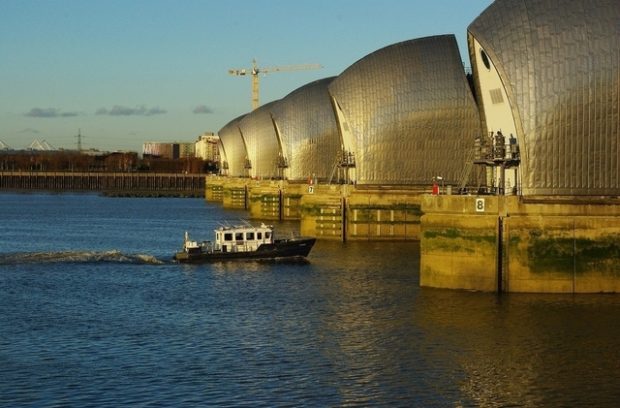
On Saturday (12 December), the UK became one of the first countries in the world to fulfil a key commitment of the Paris Agreement, publishing our Adaptation Communication, setting out how we are enhancing our resilience to the changing climate.
Published as the Prime Minister brought leaders together at the virtual Climate Ambition Summit, the Adaptation Communication sets out what we are doing to prepare for the effects of climate change at home and to support those facing impacts overseas. Our approach covers the natural environment, infrastructure, people and the built environment, business and industry, and local government.
Rebecca Pow, Environment Minister, said:
The impacts of climate change demand urgent action, and we are determined to be global leaders. We must adapt to these impacts at home and overseas. That is why the UK is fulfilling a key commitment of the Paris Agreement and asking others to do the same both at the Climate Ambition Summit, and ahead of COP26 in Glasgow next year as we come together for our planet.
We can’t rest on our laurels, which is why, as well as implementing the bold actions set out today, we’re developing a long-term vision and framework to help us ensure resilience to climate risk up to 2050 and beyond.
Emma Howard Boyd, Chair of the Environment Agency and the UK Commissioner to the Global Commission on Adaptation, said:
An increase in the impacts of the climate emergency, like heatwaves and floods, is already happening. The global race to net zero is essential to limit their rise, but if we don’t prepare for new extremes we’re on a hiding to nothing. We also need a race to resilience.
There are social and economic opportunities in helping communities improve resilience. We must invest in traditional infrastructure, like flood walls and early warning systems, but we are increasing our use of nature based solutions to manage water and reach net zero at the same time. We set out our approach in our pioneering Flood and Coastal Erosion Risk Management Strategy, which we are sharing with international partners ahead of COP26.
At home, we are putting nature at the heart of our approach, including committing £640 million through the Nature for Climate Fund to protect, restore, and expand habitats like woodlands and peat bogs. We are also building resilience to flooding and coastal change with a long-term flood plan and Environment Agency strategy.
Overseas, we’re doubling our International Climate Finance (ICF) contribution to £11.6 billion between 2021-2026. We are also supporting the international Risk-informed Early Action Partnership (REAP) which aims to make one billion people safer from disasters by 2025, and spearheading changes to adaptation and resilience financing, for example through the Coalition for Climate Resilient Investment.
Alongside this announcement, Minister Goldsmith wrote a piece in the Independent to mark the fifth anniversary of the Paris Agreement.
The minister stressed the importance of nature in our fight against climate change, with the protection and restoration of forests, mangroves and peatlands having a huge role to play. He also outlined the need to tackle the drivers of land degradation, as we are already doing with new laws to prevent big businesses from using products which cause illegal habitat destruction overseas.
2 comments
Comment by John Baxter posted on
In my experience regarding flood prevention and control, when I proposed slowing the flow in the water catchment area of Pickering Beck, I was amazed to find that NYCC, NYMNP and the EA had not communicated with one another about the rain falling in the National Park in North Yorkshire County and flowing down Pickering Beck, managed by EA.
The meeting held in Pickering Town Council office was a revelation that the jurisdiction of the EA stopped at Newbridge, the boundary of NYM National Park, above which is the catchment area of water feeding Pickering Beck. It is long overdue that EA widens its horizons and accepts the responsibilities of water catchments as a whole and not as pieces......and we need more than flood walls and alerts in the future......we need cost effective flood prevention.....beavers can only do so much!.
Comment by William Hughes-Games posted on
In the drive to find expensive prestige projects to increase resiliency to climate change, you may be missing some simple, effective measures. For instance:
*Legislate that anyone flooded from the sea will receive generous compensation - once - . If they opt to stay where they are, they are uninsurable and will not be helped out again. This will spread out the economic pain of helping flood victims and let nature tell you where the problem areas are.
*Get beavers into the head waters of every water way in the UK. This will greatly reduce floods from the land and increase low water flows plus a raft of other benefits.
*Finance at least one farm in every borough to adopt regenerative farming as laid out in Montgomery's book, Growing A Revolution. It will be the demo farm for other farmers in the area. Once they realize that the farm has a better bottom line and far more resilience to vagarities of weather and markets, the methods will be adopted.
*Get at least one pyrolysis unit up and running. It should be in the grounds of an existing petroleum refinery. Pyrolysis can take care of a whole raft of waste streams including used tires, wood waste, used oil, plastic of all types, dirty or clean and many others while producing petroleum. You might find that a dedicated unit was necessary for each type of waste or it might be possible to use one unit for more than one type of waste. Contact me if you want more information.